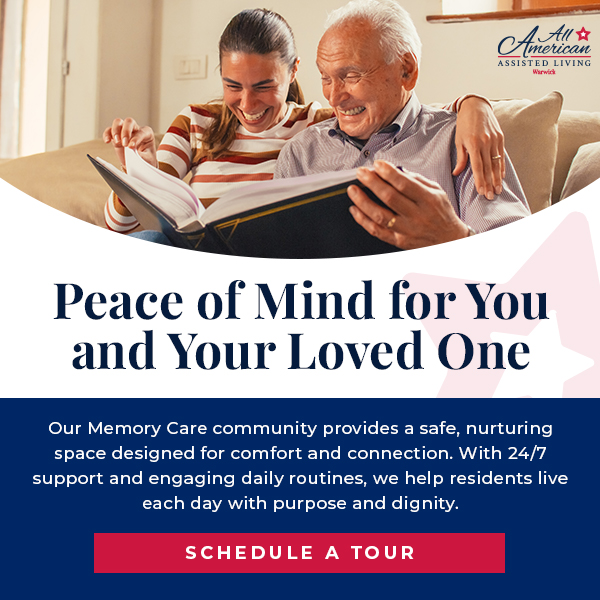Key Takeaways
- Dementia changes how language is processed, making patience essential.
- Use short, clear sentences and speak slowly to aid understanding.
- Non-verbal cues like eye contact, touch, and gestures can bridge gaps in conversation.
- Focus on emotions over facts to maintain a connection and reduce frustration.
- Quiet environments and one-topic conversations help minimize confusion.
Connecting with a loved one who has dementia, whether in a memory care setting or at home, can bring both joy and challenges. As the condition progresses, changes in memory, language, and perception can make familiar conversations more difficult.
By adjusting the way you speak, listen, and respond, you can strengthen your bond, reduce misunderstandings, and make daily interactions more rewarding for both of you.
Why Does Dementia Change the Way We Communicate?
Dementia affects areas of the brain responsible for processing language, understanding meaning, and storing memories. Over time, your loved one may:
- Struggle to find the right words
- Forget recent events or conversations
- Lose the ability to follow multi-step instructions
- Misinterpret tone, sarcasm, or facial expressions
These changes are not deliberate—they are caused by the condition’s progression. Understanding this can help you respond with compassion instead of frustration.
How Communication Needs Evolve Over Time
In the early stages, small adjustments—such as slowing your speech and using simpler language—can make a big difference. As dementia progresses, your loved one may rely more heavily on emotional cues, such as facial expressions, tone of voice, and touch. By recognizing this shift early, you can prepare to place greater emphasis on non-verbal connection and reassurance.
Tools like the FAST Score (Functional Assessment Staging Test) can help identify the stage of dementia by assessing functional abilities. This insight is valuable for caregivers and medical professionals, making it easier to determine when additional support or specialized care is needed.
How to Have Clear and Compassionate Conversations
Speaking clearly and with kindness is essential for reducing frustration and keeping communication positive. The goal isn’t to force perfect understanding—it’s to create a meaningful exchange, even if words are limited.
Keep Language Simple and Direct
- Use short, clear sentences with familiar vocabulary
- Avoid jargon, slang, or complicated explanations
- Break down instructions into one step at a time
This approach reduces cognitive load, making it easier for your loved one to follow along.
Slow Down Your Speech and Pace
Speaking too quickly can overwhelm someone with dementia. Maintain a steady, relaxed pace and pause after important points to give them time to process. If they need more time to respond, wait patiently without interrupting.
Limit Distractions Before Starting a Conversation
Noisy environments make communication harder. Before starting an important discussion, turn off the TV, reduce background chatter, and make sure you’re in a comfortable, quiet space. Facing your loved one directly can also help maintain focus and show attentiveness.
Why Non-Verbal Communication Matters
When words become harder to process, non-verbal cues can convey reassurance, interest, and affection far more effectively than speech alone.
Eye Contact and Warm Expressions
Direct, gentle eye contact helps your loved one feel acknowledged and respected. Pair it with a warm smile to convey friendliness and emotional safety.
Gentle Touch for Connection
Touch is a powerful tool for expressing care. Lightly holding a hand, resting a hand on their shoulder, or linking arms while walking can provide comfort and help them feel supported.
Gestures and Demonstrations
Actions often speak louder than words. Point to objects, demonstrate an action, or use nods and head shakes to reinforce your meaning. Combining these with verbal instructions makes your message clearer.
Watch Their Body Language, Too
Your loved one may communicate through their posture, facial expressions, or movements. Restlessness could signal discomfort, while crossed arms might indicate frustration. By noticing these cues, you can adjust your approach before tension builds.
Ways to Maintain Emotional Connection When Words Are Limited
Verbal communication may decline, but emotional connection can remain strong—and sometimes even grow deeper.
Listen for Emotional Clues Behind the Words
Even if a sentence doesn’t make logical sense, the tone and body language can reveal what your loved one is feeling. Respond to the emotion first, showing empathy and understanding before addressing the topic itself.
Reminisce and Use Familiar Stimuli
- Look at old photographs together
- Listen to favorite songs from their younger years
- Revisit familiar scents, such as baking bread or fresh flowers
These sensory cues can spark memories and positive emotions, encouraging interaction and joy.
Validate Their Experiences Without Over-Correcting
If they recall a memory differently or confuse timelines, avoid correcting unless it’s necessary for safety. Arguing over details can cause frustration and anxiety. Instead, acknowledge their perspective and steer the conversation toward something uplifting.
Celebrate Small Wins and Shared Moments
A shared laugh, holding hands, or making eye contact can be just as meaningful as a full conversation. Cherishing these moments strengthens your bond and reassures your loved one that they are valued.

Practical Tips for Reducing Frustration During Conversations
Frustration can build quickly—especially if both parties feel misunderstood. Keeping communication positive and manageable can reduce tension.
- Set realistic expectations: Focus on connection, not perfection.
- Pause before reacting: Give yourself a moment to respond thoughtfully.
- Offer reassurance frequently: Simple phrases like “That’s okay” can help defuse stress.
- End on a positive note: If frustration rises, shift to an enjoyable activity.
- Use humor carefully: A lighthearted moment can lift spirits, but avoid sarcasm, which may be misunderstood.
How Does All American Assisted Living Support Dementia Communication?
At All American Assisted Living at Warwick, we understand that strong communication is essential for building trust and creating meaningful moments in memory care. Our team uses individualized strategies that reflect each resident’s stage of dementia and personal preferences, supported by specialized training in both verbal and non-verbal techniques.
Through engaging programs such as music therapy, reminiscence sessions, and other sensory activities, we help residents connect, express themselves, and enjoy moments of joy throughout the day.
By combining professional expertise with heartfelt compassion, we foster an environment where residents feel understood, valued, and supported—giving families confidence and peace of mind that their loved one is in a place where they can truly thrive.
Book a tour today to meet our team, explore our welcoming community, and discover how we can support your loved one with compassionate memory care.






